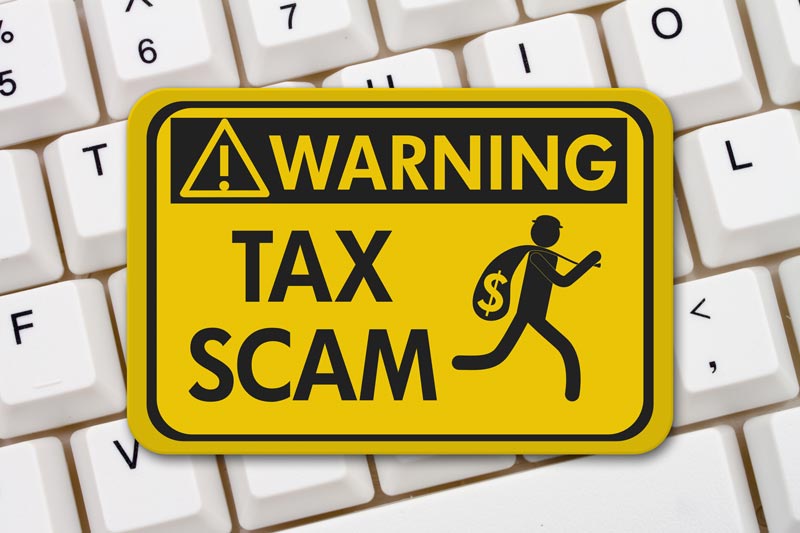Watch out for tax fraud and scams
Learn how to identify and protect yourself from tax-related fraud and scams.

Fraudsters are always looking for ways to steal money, personal information, and data. Tax season, however, is especially ripe with tax-related fraud and scams that try to mislead you about tax refunds, credits, and payments. The most common types of tax-related fraud and scams include:
- Identity theft – Scammers use stolen personal information to file fraudulent returns and claim refunds. Never share your personal information with anyone unless you start the contact. If your Social Security number (SSN) or individual tax identification number (ITIN) was stolen, immediately report it to IdentityTheft.gov. You can request an identity protection personal identification number (IP PIN) from the IRS which protects your account and verifies your identity when your file your tax return.
- Ghost preparers – Beware of unlicensed tax preparers promising fast or too-good-to-be-true refunds. In this scam, they charge tax preparation fees, but either don’t file the returns or file inaccurate returns. Then, they vanish or “ghost” you without a trace. Review your tax return before it’s submitted to ensure it was signed by your tax preparer. A red flag is if they ask you to sign your own return, which makes it appear self-filed. Then, if something goes wrong, you are now personally liable for any errors or penalties. Only allow refunds to be deposited into your personal accounts, not the tax preparer’s account.
- Phishing and smishing attempts – Be cautious of anyone contacting you via email (phishing) or text (smishing) about taxes. Imposter scammers often pose as the IRS, or other legitimate agencies or companies. Never click on links or open attachments in suspicious emails or texts. The IRS, or any other government agency, will never call you to demand immediate payment or threaten arrest.
- Social media scams – Be wary of any social media content on tax-related topics. There are a lot of posts and ads on social media spreading misinformation about tax laws or offers for tax-related services. Verify information from official sources like the IRS website.
How to protect yourself
- File your tax return as early as possible. The earlier you file, the lower the chances that scammers can file a fraudulent tax return using your name or personal information. And, if you discover a problem, you have time to correct it before the filing deadline.
- File your taxes electronically. Electronic filing offers a secure way to file your taxes. E-filing also offers real-time confirmation and a way to track your return. Some free e-filing services include:
- IRS Direct File – File your federal tax return directly to the Internal Revenue Service.
- CalFile – File your state tax return directly to the California Franchise Tax Board.
- MyFreeTaxes.org – Offers free tax services through the United Way of California.
- Use professional tax services. If you prepare your taxes yourself, use a professional tax preparation software like Intuit Turbo Tax or H&R Block. Protect your accounts by using two-factor authentication. If you need more help, use VITA services or hire a certified tax professional to prepare your taxes. Check their credentials on the IRS’ Directory of Federal Tax Return Preparers.
- Report any suspected tax fraud or scams: